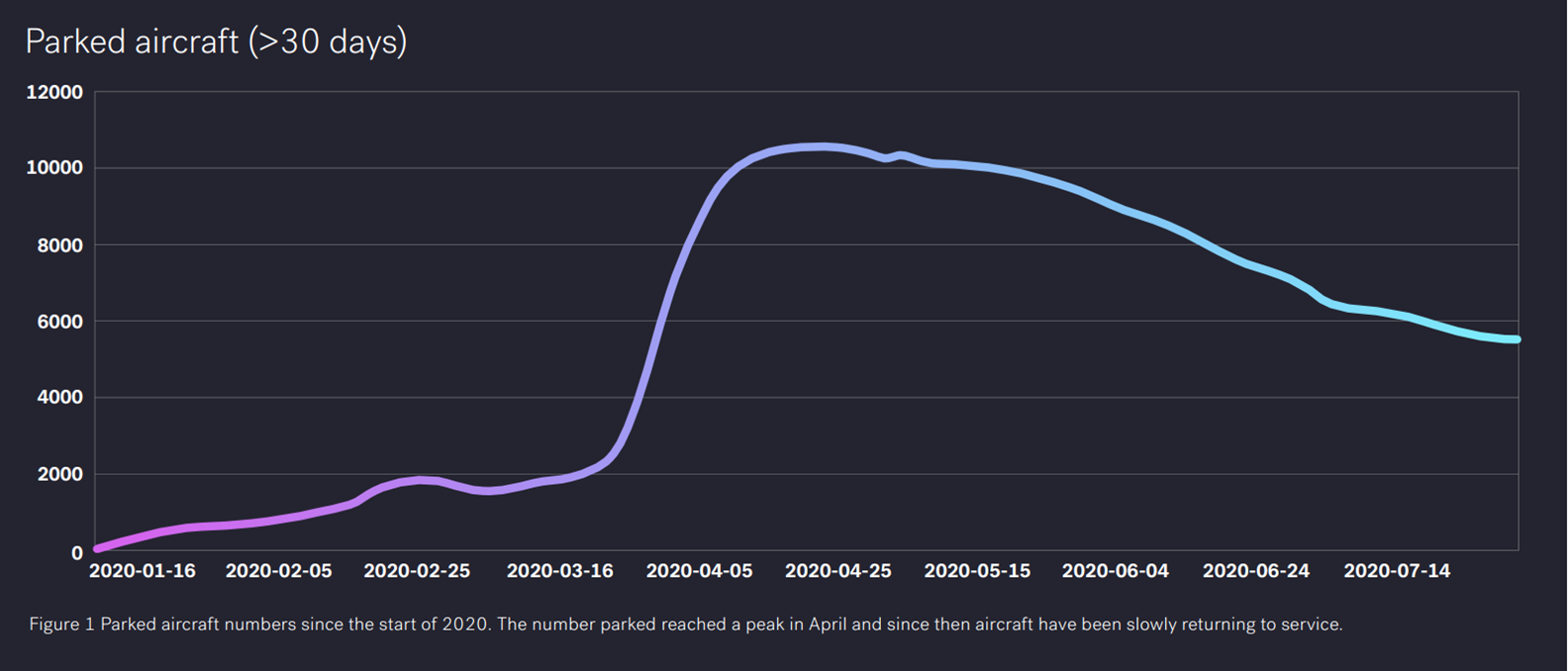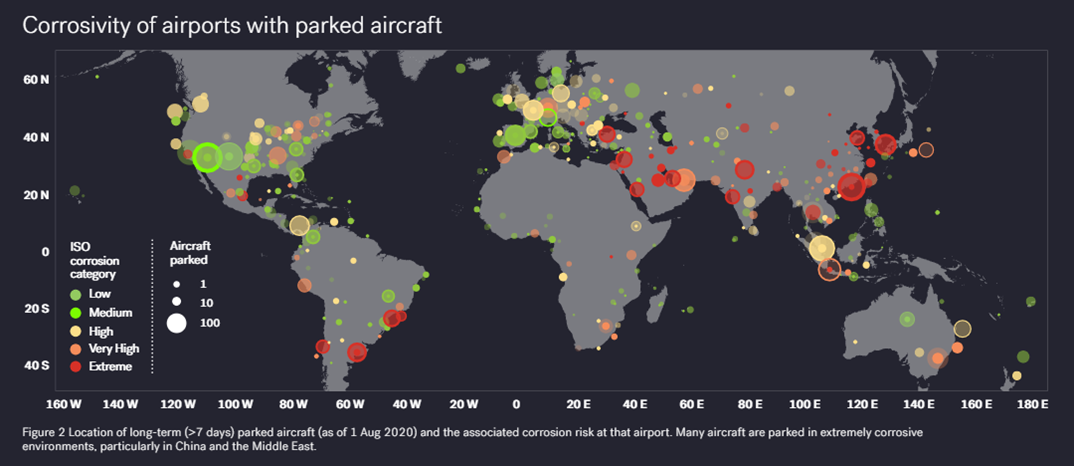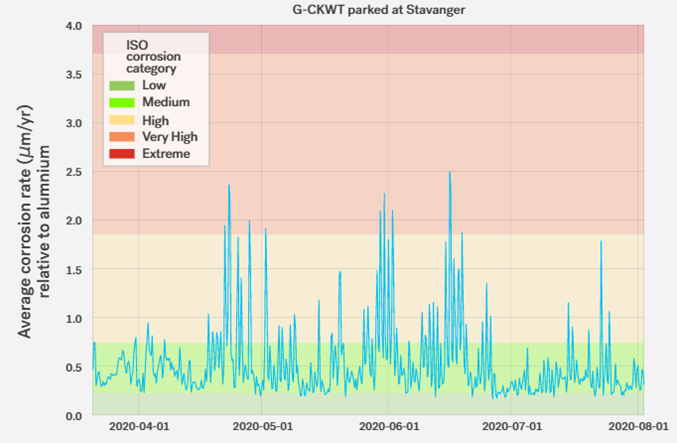DECISIONX:FLEET Parked Aircraft Corrosion
Download the case study here:
Problem:
Flight restrictions and reduced passenger demand due to the COVID-19 pandemic caused airlines around the world to ground large numbers of aircraft (Figure 1).
Many commercial aircraft have remained parked for more than 30 days and as restrictions have eased in many countries and flight numbers are starting to increase, these aircraft have returned to service after long periods on the ground. Environmentally-driven corrosion while grounded means the aircraft are likely to require additional maintenance before being brought back into service.

A recent FAA emergency airworthiness directive addresses concerns around damage to the engine bleed air 5th stage check valve on Boeing 737 aircraft which can result in engine power loss and inability to restart the engine. This damage is likely caused by long-term storage in corrosive conditions.
EASA has also released Safety Information Bulletin SIB 2020-14 which relates to a large number of reports of unreliable speed and altitude indications during the first flight(s) following the aircraft leaving storage. Most of the reported events concerned the accumulation of contamination which caused obstruction of pitot probe and static port orifices.
Solution:
SATAVIA’s product suite is called DECISIONX which provides quantitative actionable insight on the prevalence of airborne contaminants at global scale. DECISIONX applies best-in-class technology from software engineering and data science, aerospace engineering, and atmospheric science, and is hosted in the Microsoft Azure cloud, which provides scalability and security.
SATAVIA uses various sources of external environmental data – e.g., Earth Observation satellite data, Global Climate Model data – in addition to our own internally-generated data to provide the best-available globally-consistent data intelligence on environmental contaminants.
SATAVIA tracks over 20,000 active commercial aircraft using terrestrial- and satellite-based ADS-B messages. Parked aircraft are also tracked to quantify corrosion risk factors. DECISIONX:FLEET provides a flight-by-flight quantitative exposure analysis for individual aircraft in a fleet to dust, air pollution, sea salt, soot and other contaminants and is delivered as data-as-a-service (DAAS) via API. DECISIONX:FLEET enables OEM, MRO and airline operators to enhance condition health monitoring and optimise engine core wash scheduling to save fuel and get extra time-on-wing.
DECISIONX also provides analysis of numbers of parked aircraft and environmental corrosivity at airports globally (Figure 2). DECISIONX:FLEET provides aircraft and airport contaminant time-series, corrosion rates and risk, and is based on an ISO methodology that provides corrosion risk and absolute corrosion rates for a selection of different pure metals (e.g., sheet aluminium).
DECISIONX:FLEET provides a repeatable measure for the corrosiveness of the atmospheric environment that aircraft operate in and airports where aircraft are stored.
On-ground corrosion analysis
OEM, MRO and aircraft operators can use this information to prioritise and proactively plan maintenance requirements and make decisions on where to store aircraft based on the environmental conditions.
Additionally the information can be used to support any maintenance and re-certification required for return to service. Environmental exposure data enables more accurate condition monitoring, faster return to service and optimised maintenance costs.
Download the case study here:
About SATAVIA
SATAVIA provides decision intelligence and actionable insight to make aviation smarter, cheaper and greener.
SATAVIA’s exceptional team combines talent in artificial intelligence, data science, data and software engineering, and atmosphere and climate science.SATAVIA is supported by Microsoft in the UK through its involvement in the AI Factory – part of Microsoft for Startups. SATAVIA has been recognised in the top 50 companies in the 2020 European Startup Prize for Mobility list.


